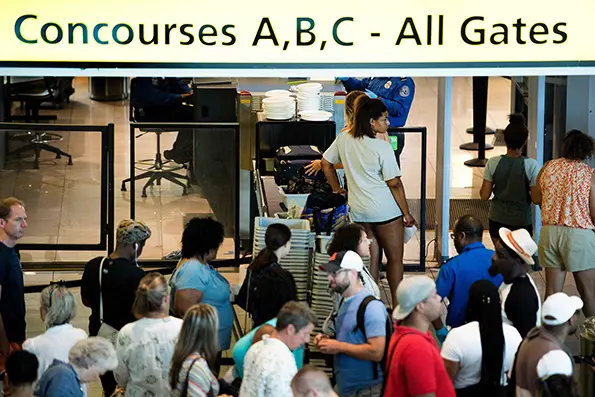Brazilian economists on Thursday said it was too soon to declare the country's two-year recession over, despite positive first quarter results for 2017.
According to Rebeca Palis, of the Brazilian Institute of Geography and Statistics (IBGE), which released the economic indicators earlier in the day, "we have to wait a little to see what is going to happen this year."
While figures showed GDP grew 1 percent compared to the previous quarter, that growth "came atop a very low base, and if we look at the long term, we are still at the same level as in 2010," said Palis.
Economists also pointed out that overall performance was uneven, with GDP largely buoyed by the agricultural sector, which saw record yields and growth of 13.4 percent, while other sectors fared worse.
Also, consumer demand was expected to see a 0.4 percent increase after dipping for eight quarters in a row. Instead, it shrank yet again, by 0.1 percent.
Commenting on the first quarter results, Brazil's President Michel Temer seized the opportunity to announce the recession is over, eager to provide the country with some good news after weeks of dismal headlines spotlighting corruption scandals involving top government officials, including the head of state.
Economists fear the recent bribery scandals have scared away investors and undermined the economy, and will be reflected in the second quarter performance.
The scandals have also eroded support for Temer, making it more difficult for his government to pass key structural reforms, including changes to social security programs, considered essential to lowering the public debt.
Lisa Schineller, the managing director of sovereign ratings at crediting rating agency Standard & Poors, warned the political crisis could lower Brazil's sovereign credit rating.
Alberto Ramos, co-head of the Latin America economic research team at Goldman Sachs' global investment research division, questioned the soundness of Brazil's current economic policy.
Ramos noted IBGE's figures showed private-sector spending fell 9.7 percent since the end of 2014, while public-sector spending fell 2.4 percent over the same two-year period.
"That shows that the burden of macroeconomic adjustment underway continues to fall disproportionately on the private sector," said Ramos.
Brazil's former finance minister, Delfim Netto, was more optimistic, telling a stock market seminar in Sao Paulo that the first quarter outcome shows Brazil's economy is improving, and could see moderate growth in 2017 of between 0.2 and 0.4 percent.
However, Netto also said Brazil was in a period of "absolute uncertainty," given the speculation swirling around Temer's political future.
"Uncertainty kills the animal spirit of businesspeople and investors," said Netto.
According to latest figure, GDP in the first quarter of 2017 grew 1 percent compared to the fourth quarter of last year, marking the first increase after two years of steady decline. Though compared to the same period of 2016, GDP was down by 0.4 percent.
The economy contracted in the past two years, by 3.8 percent in 2015 and by 3.6 in 2016, marking Brazil's worst economic performance since the 1930s.
(ASIA PACIFIC DAILY)
 简体中文
简体中文





